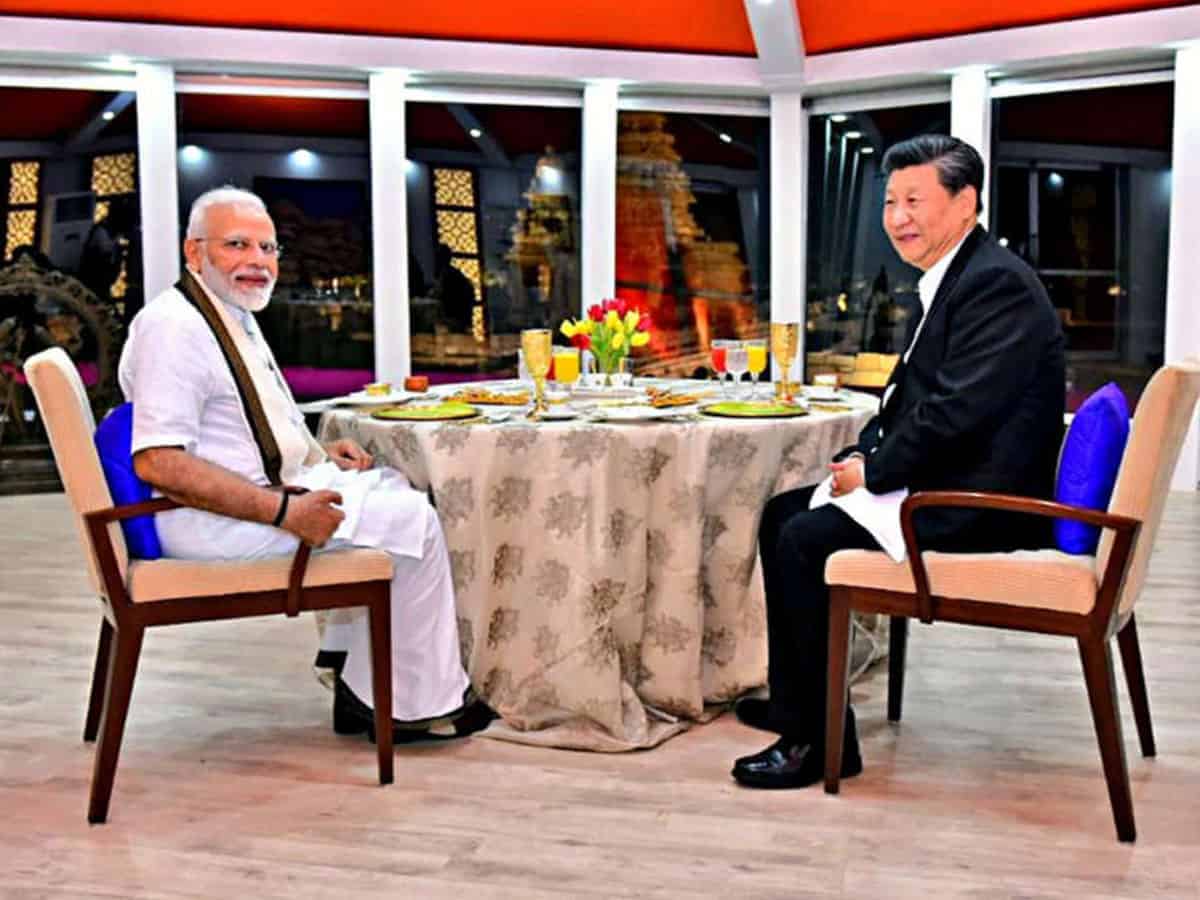
Some centuries ago, Kautilya had written in his book Arthashastra– a treatise on politics– that “A country’s neighbour is its natural enemy.” This seems to be very true in the context wherein India has been at loggerheads with three of its bordering countries-– Pakistan, China and Nepal. Now, when we interpret Chanakya’s saying in its wider sense, one can say that it is only the bad actions that we need to retaliate to but for good things of the neighbors, we must take lessons for our own good.
In the second spell of its retaliatory game, Narendra Modi Government has banned another 150 Chinese applications, including the most popular PUBG game. This adds to 58 Chinese apps banned earlier. The US imposed sanctions on China, but still China’s GDP growth is topping over other countries. Why? When we ask a typical Indian about banning Chinese goods, he says this is necessary but he does not know what Chinese goods he may be actually buying or using.
The global pandemic may have spread from China but it did not hamper its GDP. The People’s Republic of China has also stationed its troops all along its borders with India. Talks are underway to end the stand-off. Two-and-a-half months after the violent clash at Galwan Valley, India and China are facing off at a new area on the border, after Chinese troops intruded into the southern bank of Pangong Tso in August 2020.
A leaf out of Chinese model
Battling its own pro-democracy protests in Hong Kong, China faces UK’s threat offering visas to millions of residents from ex-British colony. India could be at war with China and embarking on a path of economic self-reliance but the need of the hour is something different. The situation may turn worse unless India goes for peaceful settlement of its now ongoing disputes with neighbours and works on the strategy of containment and financial stability.
China can be blamed for the origin of pandemic but it quickly learned from its failure. Chinese goods’ share in Indian market stands at 12 percent and this indicates that there cannot be a complete ban but just a decrease in the percentage of imports. The fact that India was already into economic slowdown even before the pandemic hit the globe should not be forgotten.
As a developing country, India must first work on its strategies and take lessons from the countries which have come out from the impact of the COVID pandemic and are doing better. It should take a leaf out of China’s model to mitigate the financial crisis. It will just be a mere slogan if India talks about self-reliance at a time when the economy is reeling under recession.
We should wake up to realities and take steps to check the declining GDP and reverse the trend. Earlier this month, the data released by the Ministry of Statistics and Programme Implementation showed negative growth of GDP of India. The GDP recorded a decline of 23.9 percent in the first quarter of the 2020-21 financial year.
China beats recession
When we evaluate the GDP of other countries, we see that it is just not India but the other nations have also witnessed similar decline in GDP. Let us look at the GDP of strong economic powers of the world today — United States’ GDP declined by 9.1 percent. United Kingdom’s GDP stood at minus 21.7 percent while France, Japan and Russia witnessed negative growth of 18.9, 9.9 and 8.5 percent respectively.
On the other hand, to utter surprise of the world, China’s GDP showed extraordinary growth of 3.2 percent. However, comparatively, India’s GDP has dramatically declined. It is a continuous period of recession for Indian economy and it should not get pushed more deeply into chaos but press on the revival button.
Many countries criticized China for hiding the outbreak of Covid-19 but now they are appreciating its handling of the crisis. Hence, there are some cues we need to take from it. One of the tips that Indian government should take from China is the way that country remained undeterred by the changes brought by the pandemic as well as provocative acts of other countries and the public outrage over the human rights violations in Hong Kong.
Britain suspended its extradition treaty with Hong Kong amid worries about a new national security law that Beijing imposed on the former British colony. Secondly, India needs to make more investments in the manufacturing sector and public spending rather than going for slogans like Aatma Nirbhar. India also should learn from China’s policy support for its industries and see if the same can work in this country and it can take steps accordingly.
What did China do to keep COVID under check?
China recorded only 91,000 cases and 4,750 deaths due to COVID-19 so far. Late in April 2020, the number of new Corona virus patients in Wuhan was zero. How was China able to do this? China eased its lockdowns as the number of new Corona virus cases dwindled. But it remains vigilant to stop a second wave of infections. Regulations were issued to promote “civilized behavior.” Social distancing and hygiene measures remained in force.
China announced new measures to avoid a second wave of COVID-19 infections as it gradually reopened its economy and released the citizens from Corona virus lockdowns. We are seeing gradual recovery in China. Return to work has spurred factory production and all sectors seem to be doing relatively better. China’s GDP recovery is likely to be sustainable in the next two quarters at least, as the domestic economy seems to be doing “fine” with growth in infrastructure and restoration of cross-provincial travel.
Generally speaking, the Chinese economy overcame the adverse impact of the epidemic in the first half gradually and demonstrated a momentum of restorative growth and gradual recovery, further manifesting its developmental resilience and vitality. Statistics bear this out.
The Chinese government has introduced measures to boost the economy including fiscal spending and cuts in lending rates and banks’ reserve requirements — the amount of cash that lenders must hold in reserve. China reported that the country’s GDP grew by 3.2 percent in the second quarter of this year beating the analysts’ expectations and rebounding from the first quarter’s contraction.
Instead of getting engaged in rivalry and planning this tit for tat games, India needs to only start working on its own and think about how to overcome the recession. Then only India can get the world’s praise for its self-reliant economy. It is high time that India needs to take care of its economy and acknowledge that it is on par with the world’s economic super powers. Its experiments with self-reliance, GST regime and demonetization have not borne fruits.
Fatima Hasan is a Hyderabad based journalist

